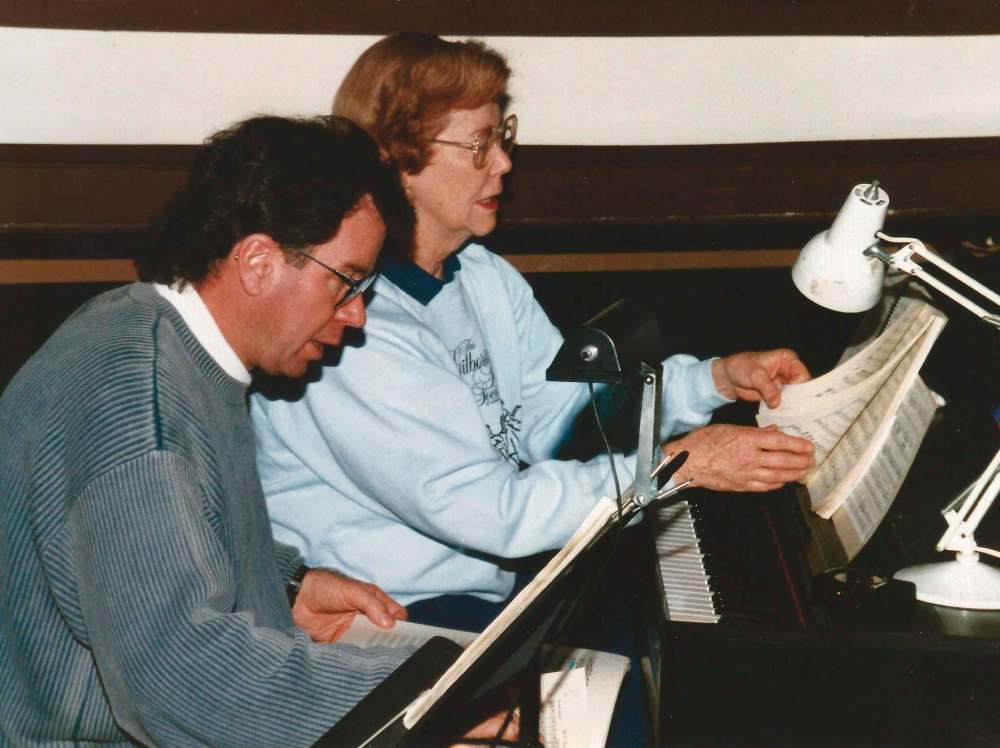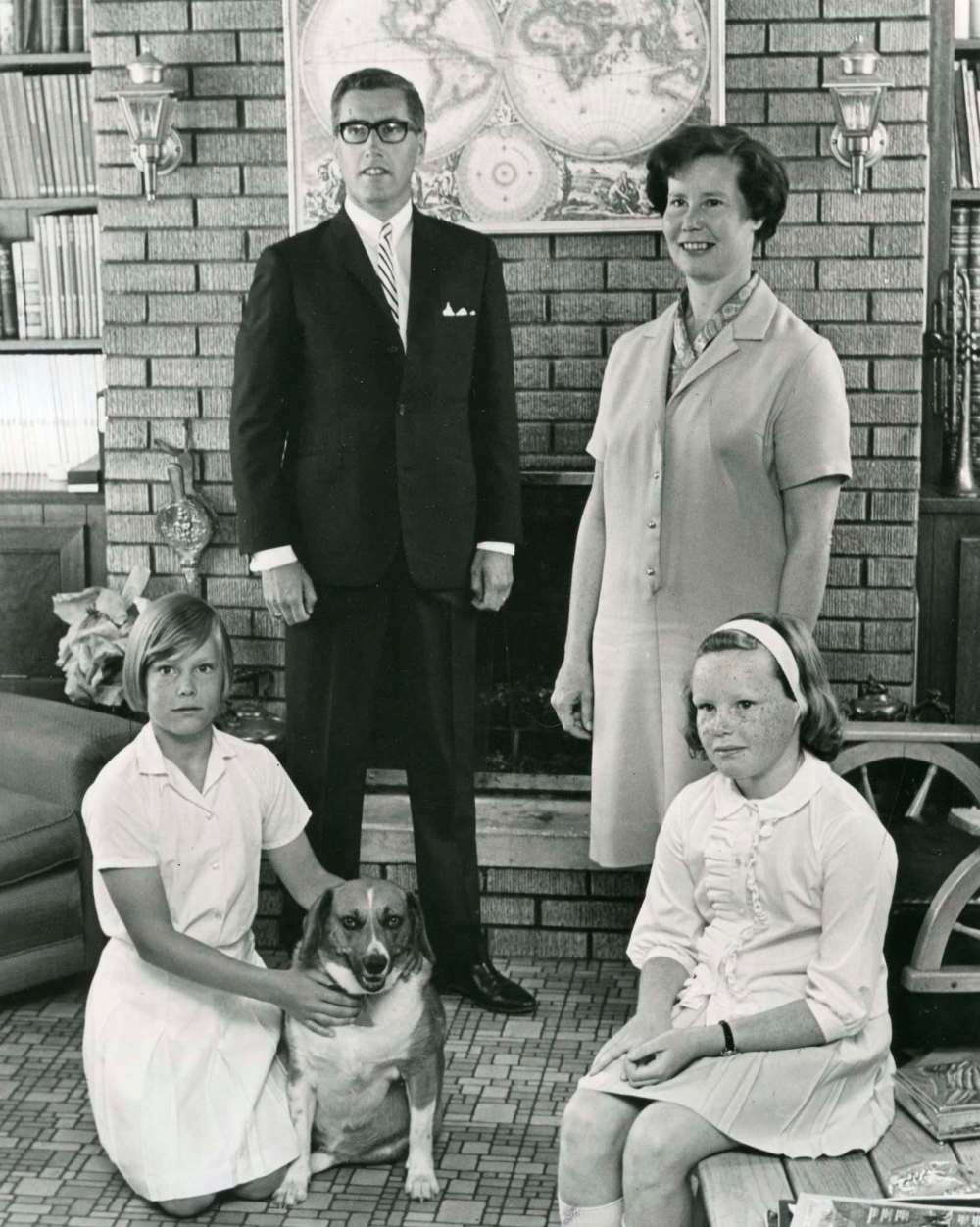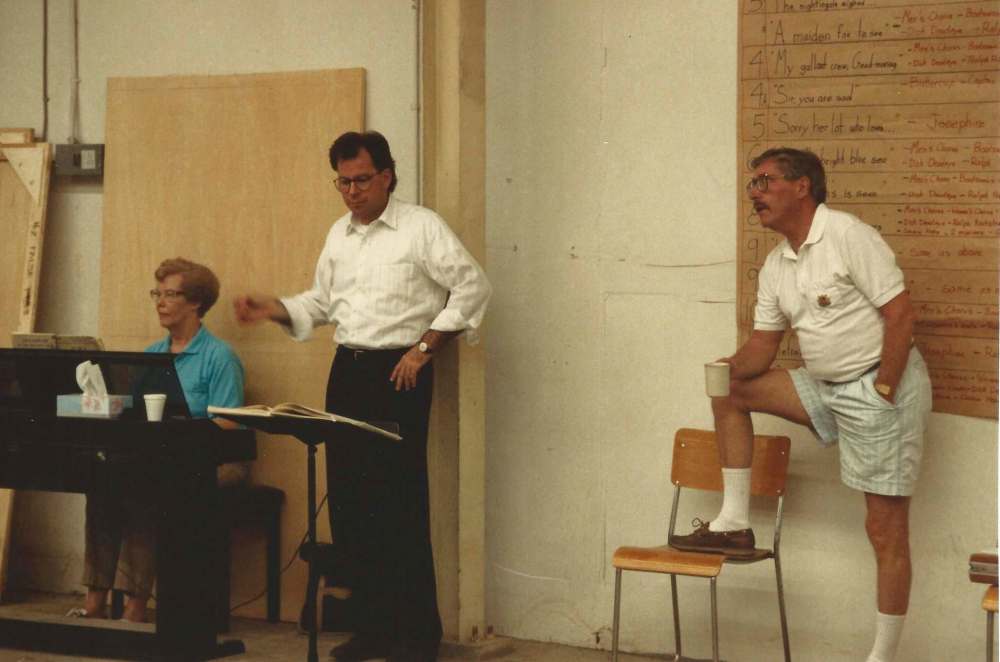The keys to the city
Gifted pianist Margaret Harrison was mainstay of Winnipeg musical theatre
Advertisement
Read this article for free:
or
Already have an account? Log in here »
To continue reading, please subscribe:
Monthly Digital Subscription
$1 per week for 24 weeks*
- Enjoy unlimited reading on winnipegfreepress.com
- Read the E-Edition, our digital replica newspaper
- Access News Break, our award-winning app
- Play interactive puzzles
*Billed as $4 plus GST every four weeks. Offer only available to new and qualified returning subscribers. Cancel any time.
Read unlimited articles for free today:
or
Already have an account? Log in here »
Hey there, time traveller!
This article was published 21/09/2019 (1991 days ago), so information in it may no longer be current.
When she went to audition for the Kelvin High School production of Gilbert and Sullivan’s The Mikado in the early 1940s, Margaret Harrison was hoping to be cast as Pitti-Sing, the sister of Yum-Yum and Peep-Bo. Her confidence impressed the casting committee. There was one problem: while she was good at singing, Margaret Harrison was one of the most talented young pianists in the city.
Even in Grade 6, the fledgling ivory tickler was already playing lead piano in the pit for high school musicals, a phenom whose talents were preternatural but whose attitude was characterized by modesty and a desire to improve.
“Sorry Marg,” she was told by the Kelvin brass at her audition. “But we really need you behind the piano.”

For Harrison, who died in April at the age of 90, a good deal of her life was spent on the bench, where she made herself an indispensable part of the musical fabric of her city and in the lives of those who knew her. An unparalleled sight-reader, there wasn’t a composition she couldn’t master. Throughout her seven-decade musical career, Harrison left an indelible mark on Winnipeg’s musical theatre world, laying down the backing track for musicals on Rainbow Stage and at the Pantages Playhouse. Her fingerprints are all over the keys of the city.
In 1948, Margaret Dow was 20, overflowing with musical talent. At the University of Manitoba, she was brought in as the accompanist for the school’s glee club auditions, where young men did their best Modern Major Generals and other musical theatre standards. It was at these auditions that Dow met Glen Harrison, the man who’d become her husband and musical collaborator for nearly 70 years.
Margaret and Glen bonded over their love of music and education, with both becoming teachers and mentors to the city’s best.
The Harrison name became synonymous with some of Winnipeg’s most well-regarded institutions: Margaret became a music teacher in the Seven Oaks School Division, with Glen as the division’s music director; Glen later became artistic co-ordinator and music director for Rainbow Stage, and Margaret found herself at the piano as the theatre company hit its stride in the 1970s. Margaret led the Oxford United Church choir, while Glen led Westminster’s. Later, they co-founded the local Gilbert and Sullivan Society.
During rehearsals, and the performances at Rainbow Stage, Harrison helped build the sound needed to make the productions fill the amphitheatre. She earned the admiration of her colleagues in the orchestra for her vast knowledge, calm demeanour and professionalism.
Judy Murphy joined Rainbow Stage in the late 1970s as a pianist as well. At 21, she looked up to Harrison, who seemed to know every note, not just the ones she was playing.
“I saw her as a mentor,” said Murphy. “She was an amazing pianist of course, who really understood the essence of Broadway music.”
As constant as Harrison was at the piano were the green mints she had in a dish on the piano’s body and the cookies she’d hand out during breaks at rehearsal. She was always there to make sure things ran smoothly.
Once, when the conductor was unable to make it to closing night of the company’s production of Desert Song, Murphy recalled, Harrison picked up the baton to lead the orchestra.
At the same time as the Harrisons’ rise in the local scene, their children began to come into their own musically.

Susan became an accomplished soprano and later a music teacher, Nancy earned a bachelor’s degree in music and a master’s in trumpet, and Reid fine-tuned his cello playing, led productions at Kelvin and Grant Park, and eventually began Dry Cold Productions, a theatre company.
During a few Rainbow Stage productions, every Harrison except for their dog Jordie played a part.
There was never pressure to become great musicians, the three agreed, but it felt like the natural thing to do was do what made their parents so happy.
“Aside from her tremendous talent, she was an incredibly supportive person,” said Reid. “She supported everything we wanted to do musically and otherwise,” said Susan, whose mom was her accompanist at hundreds of performances.
“Without looking at each other, she knew when I was going to breathe, and if I made a mistake, she was with me all the way to cover it very nicely,” she said.
Aside from her family and friends, music is what drove Harrison’s life, and that became more apparent than ever with the beginning of the Gilbert and Sullivan Society. In a bit of a full-circle moment, Harrison once again played along with H.M.S. Pinafore, The Pirates of Penzance, and The Mikado, which was the society’s first show in 1991.
“She knew the show so well,” said Julie Husband, the bassoonist who played in every G & S Society show until its last in 2018.
“We all remember her laughing and having such a good time. Her passion was so obvious.”
That first year, more than 3,600 people went to see The Mikado, and it was a treat to hear Margaret Harrison play it the way only she could.
“She’d have the score on the music stand, but I think she was playing from memory,” said Fred Cross, who sang in most of the society’s shows. “She didn’t draw any attention to herself, but in her quiet way, she made a huge impact. She was just a joy.”

Harrison eventually stopped playing for the society, but never lost her admiration for music. When she and Glen moved into assisted-living, her beloved baby grand Knabe was traded for a digital keyboard.
After Glen died in 2017, Nancy moved in to help care for her mom. With Margaret at the keys and Nancy with her trumpet, the living room was filled with Haydn and Hummel, and often, the CD player would blare Gilbert and Sullivan. “Even at 90, she knew all the words to every song, even the patter ones,” said Nancy.
For her mom’s 90th birthday, Nancy arranged for Husband to teach her mother to play the flute: she took an intro class and wanted to get better. She always looked to learn and create.
In the orchestra pit, in rehearsals, in the classroom, and in the lives of her friends and family, Harrison always sought out ways to make those around her better, and to give them the support they needed to thrive, her kids said.
“The nature of being an accompanist is making yourself secondary to a larger entity,” said Reid, tearing up.
Even though she never basked in the spotlight, and even though she never got to play Pitti-Sing, there is no denying what Harrison was to those who knew her: a star.
ben.waldman@freepress.mb.ca

Ben Waldman
Reporter
Ben Waldman covers a little bit of everything for the Free Press.
Our newsroom depends on a growing audience of readers to power our journalism. If you are not a paid reader, please consider becoming a subscriber.
Our newsroom depends on its audience of readers to power our journalism. Thank you for your support.

